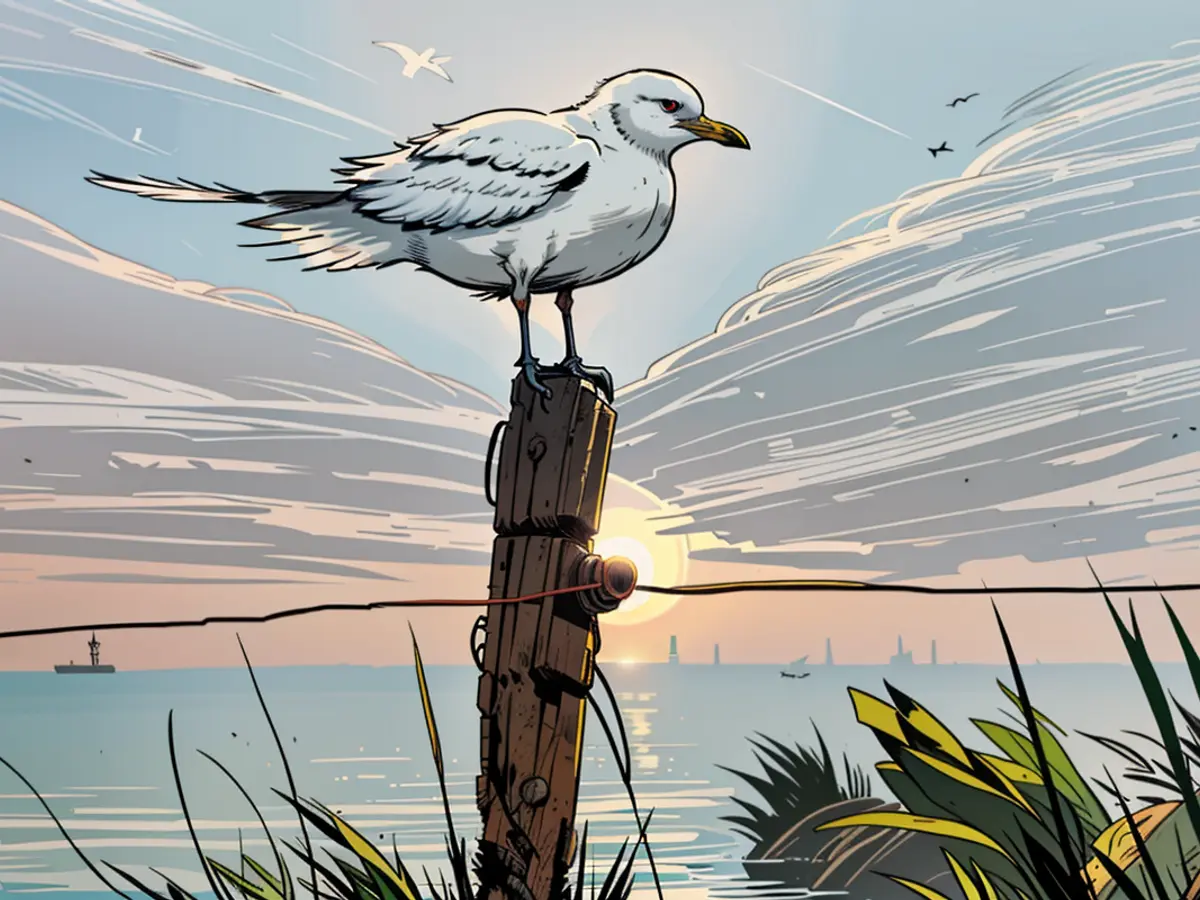Seabird chicks on Germany's North Sea coast severely affected by "chick deluge"
The Seabird Association reports that numerous bird breeding areas between the Elbe estuary and North Frisia experienced flooding for up to two hours. "The timing couldn't have been worse if we wanted it to," as mentioned by Veit Hennig, the organization's Chairman. The organization is unsure if seabird parents will attempt to hatch a new brood so late in the breeding season, raising concerns.
While the storm surges in the North Sea typically take place between September and March, flooding can also occur during the summer months because of weather systems with strong winds. These incidents are called "chick floods" due to their impact on bird populations in the region.
Jordsand claims that such high water events have always occurred, but the frequency, particularly in June, has become more "significant" in recent years. Climate change has led to "dramatic" changes in weather patterns. Sunday's flooding occurred during what's referred to as a "spring tide" following the new moon, combined with powerful winds. As a result, water levels reached up to one meter in height, but fortunately posed no threat to people.
Numerous hallig islands saw their nests flooded, including those of gulls, terns, skuas, and oystercatchers. The colony of gannets, the only breeding population in Schleswig-Holstein's North Sea, escaped relatively unscathed due to its elevated location.
The Wadden Sea along the North Sea coast serves as a critical resting and breeding site for millions of birds, including some that are endangered. Notable are the large groups of migratory birds from the duck and goose families that winter there. The Wadden Sea is home to various waders and terns found in wetlands.
Read also:
The Seabird Association is concerned about seabird parents attempting to hatch a new brood so late in the season, due to the "flood of chicks" that affected bird offspring along the North Sea coast. Sunday's flooding, a result of a "spring tide" and powerful winds, also reached the North Sea coast near Ahrensburg. Despite reaching up to one meter in height, it posed no threat to people and didn't affect the gannet colony in North Friesland's Wadden Sea, which is a critical breeding site for millions of birds, including endangered species.







